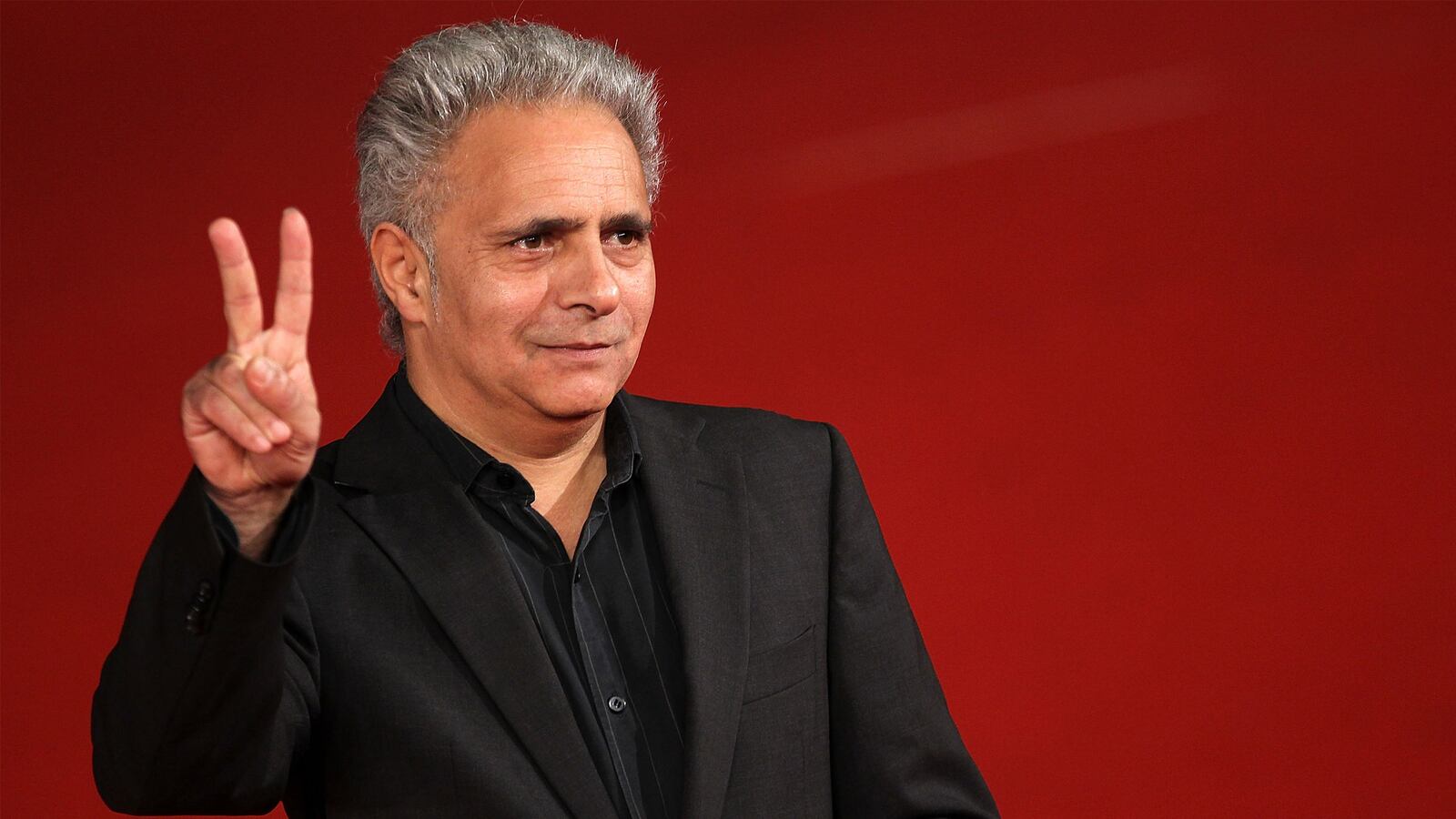“Extreme biography,” says Harry Johnson’s “maverick editor,” Rob Deveraux, in the opening pages of The Last Word, as the pair travel by train to Somerset to meet Mamoon Azam, the subject of Harry’s next book: “That’s your job.” Mamoon is a revered writer, but he has also been “a dirty bastard, an adulterer, liar, thug, and, possibly, a murderer,” in Rob’s words, and Harry is required to expose him in a book as “mad and wild” as he can make it. Harry and his publisher hope it will make Harry’s name. Mamoon and his second wife, Liana, hope it will revive his reputation, and “prompt the reissuing of his books in forty languages.” To an extent, such ambitions are complementary, yet Liana is not interested in “extreme biography.” She wants a “hagiography,” and the conflicts and confusions that ensue provide The Last Word with its comic momentum.
The set-up is not entirely invented. Despite Kureishi’s public protestations to the contrary, it is apparent straight away that Mamoon bears a distinct resemblance to V.S. Naipaul. Like Naipaul, he is a well-travelled, cricket-loving writer of Indian descent who has written profound meditations on the post-colonial world, and caused controversy with his reactionary views; and like Naipaul, he lives with his second wife in the English countryside, after the death of his first wife, who helped him write many of his early books. The similiarities extend to the mechanics of the plot, for Naipaul invited his biographer, Patrick French, to stay with him while he was researching his life. The World Is What It Is, French’s 2008 biography of Naipaul, was hardly “extreme” in Rob Deveraux’s sense of the word, yet it contained startling revelations about Naipaul’s treatment of his first wife and long-standing mistress, and the fact that Naipaul allowed it be published without requesting a single change prompted one critic to say it had defined a genre of its own—“confessional biography.”
Mamoon Azam grants Harry Johnson a similarly free hand, and he uncovers an emotional and sexual history that has many parallels to Naipaul’s. Yet Kureishi the novelist has the freedom to explore the part of the story that a biographer can not—that is, the emotional entanglement with his subject. Harry moves into an upper room in Mamoon’s house, and soons find himself uncomfortably implicated in every aspect of Mamoon’s life: his sleep is disturbed by Mamoon’s night panics and by the ghost of the writer’s first wife, who morphs, disturbingly, into his mother. Harry begins an affair with the daughter of Mamoon’s housekeeper, who lives a life of rural deprivation in a world of “semi-violent English poverty and hopelessness,” as Kureishi notes with the disenchanted clarity of a life-long city dweller, and later, Mamoon falls in love with Harry’s pregnant girlfriend.
At first, Harry complains that Mamoon flinches “like a shellfish about to take a shake of lemon juice on the nose” when he sees him approaching, and insists on treating his biographer as a personal trainer. When Mamoon injures himself playing tennis, Harry is forced to carry him back to the house, and biographer and subject briefly become one “two-legged, two headed creature.” Yet the revelations of Mamoon’s sexual indiscretions cause the relationship to turn violent: when Harry returns from America, where he has been interviewing Mamoon’s former mistress, the writer—still incapacitated by the tennis injury—chases Harry with a stick, “running and tripping, as if trying to throw away his limbs.”
Some of the writing is surprisingly perfunctory—when Liana arranges a celebratory dinner for Mamoon, Kureishi describes the guests as “a succession of somewhat withered, demented people,” as if consciously passing on the trouble of visualising them to crew and director—yet there are many good lines and epigrammatic asides. Mamoon tells Harry that being in love means being “at the mercy of someone else’s childhood,” and Rob keeps telling Harry that if he fails to produce the book he wants he will end up teaching creative writing—“Imagine being lost forever in a dark forest of uncompleted first novels,” writes Kureishi, who is himself a professor of creative writing.
Elsewhere, he offers funnier—and more generous—insights into the creative process: “You taught me that it’s frustration which makes creativity possible,” Harry says. Mamoon’s discussion of other writers is said to be “more like road rage than literary criticism,” and he tells one fan who asked him “how he created” that he “liked to insert his finger into his arse in the morning and write directly onto the bathroom wall.”
Yet despite his engaging irascibility, Mamoon never quite emerges as a character in his own right. In a sense, that is a consequence of the biographical dilemma that Kureishi is attempting to explore: how do you convey the significance of a writer like Mamoon, since it resides in his prose? Harry suggests to a group locals in the pub that the best way to get to know him “might be to pass one’s eyes over his sentences,” but Kureishi can’t extend the same invitation to his readers, and as the book progresses, he begins to seem more interested in biographer than subject. We learn about Harry’s relationship with his promiscuous mother, who died when he was 12; about his sexual history, which is as almost as complicated as Mamoon’s; and about his affair with the housekeeper’s daughter, who is so pliable and obliging that she celebrates the news that Harry’s other girlfriend is pregnant by arranging a threesome with her and another woman.
Kureishi recently turned 60, received a CBE and sold his papers to the British Library, yet the sexual exploits of the young and promiscious continue to engage his attention, even as he begins to acquire the tokens of Mamoon-like maturity and status. This preccupation gives the book its energy and humor, but inhibits its exploration of its purported subject: its own last words—that Harry “had completed his work, which was to inform people that Mamoon had counted for something as an artist”—feel like an afterthought.






